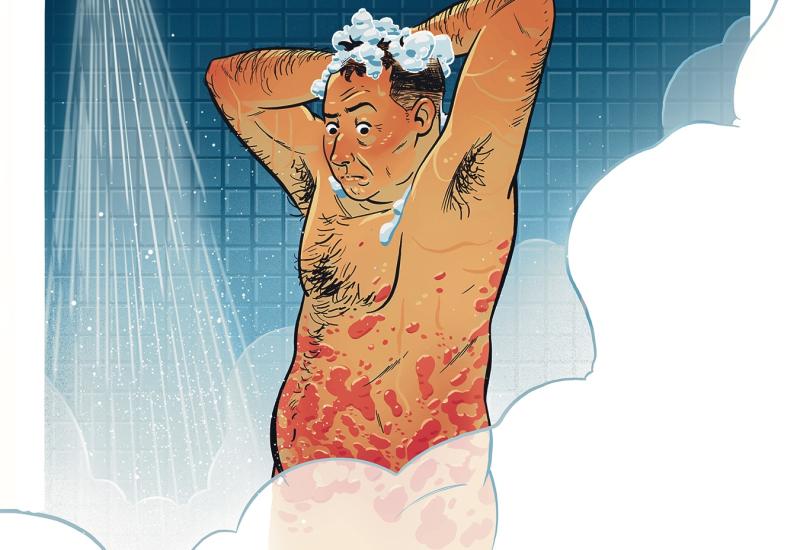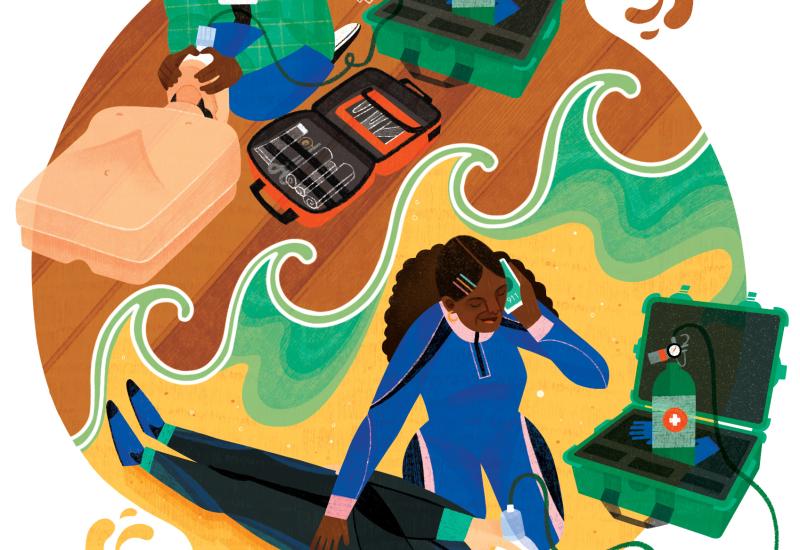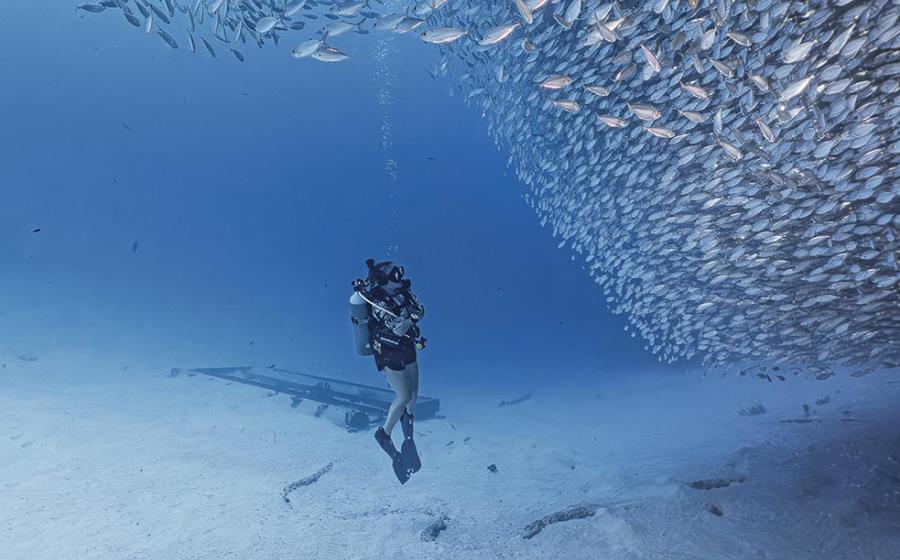Ask The Experts: What If I Ascend Too Fast?
One common concern we field at DAN involves the causes and consequences of rapid, or uncontrolled, ascents. These incidents can be serious and caused by a number of catalysts, but with appropriate knowledge and preparation, they can be avoided.
Q: WHAT CAN HAPPEN IF I ASCEND TOO FAST?
A: Divers who ascend too rapidly can increase their risk of DCI and pressure related injuries like pulmonary barotrauma, which can be caused by holding your breath during an ascent.

ShutterstockGet more dive medicine and health tips, on the Dive Medicine section of our website.
Q: WHAT CAN CAUSE A RAPID OR UNCONTROLLED ASCENT?
A: Rapid or uncontrolled ascents can be caused by a number of events, such as an out-of-air situation, a diver’s failure to measure his ascent rate, inadequate buoyancy control, loss of weight during a dive, or a failure of equipment like a BC power inflator or drysuit inflator. Panic can cause a diver to ascend too rapidly, and out-of-air scenarios and catastrophic equipment failures can cause divers to perform emergency ascents if a buddy is not available to render aid.
Q: WHAT SHOULD I DO IF I ASCEND TOO FAST?
A: Most recreational dive computers automatically calculate a safe ascent rate, and they will warn you if you exceed this speed. Should you see this warning, slow your ascent to a safer speed and continue to make a calm and controlled ascent. Should you bypass your safety stop, either due to improper weighting or some other condition, and you reach the surface, immediately establish positive buoyancy, and signal your buddy or a dive supervisor. Based on dive profile, conditions and how you feel, discuss your options with your buddy, and if you are still without symptoms after a minute or two, consider descending to complete your safety stop. This recommendation assumes that you were performing a recreational no- decompression dive, you have sufficient air left, you’re not feeling too anxious, and you are experiencing no symptoms. If you experience any symptoms after a too rapid ascent, it is important to seek a qualified medical evaluation, as well as first-aid care if necessary.
For more information on safe diving practices, visit DAN.org.










